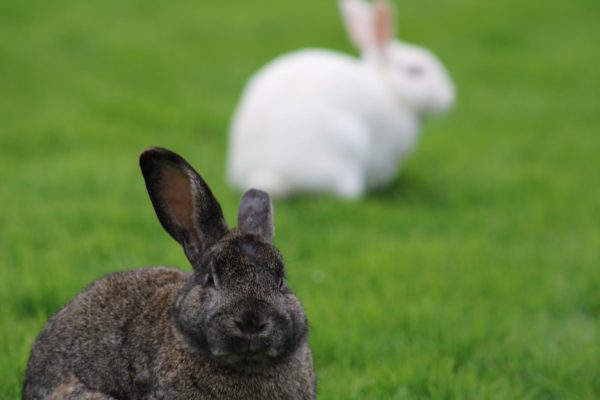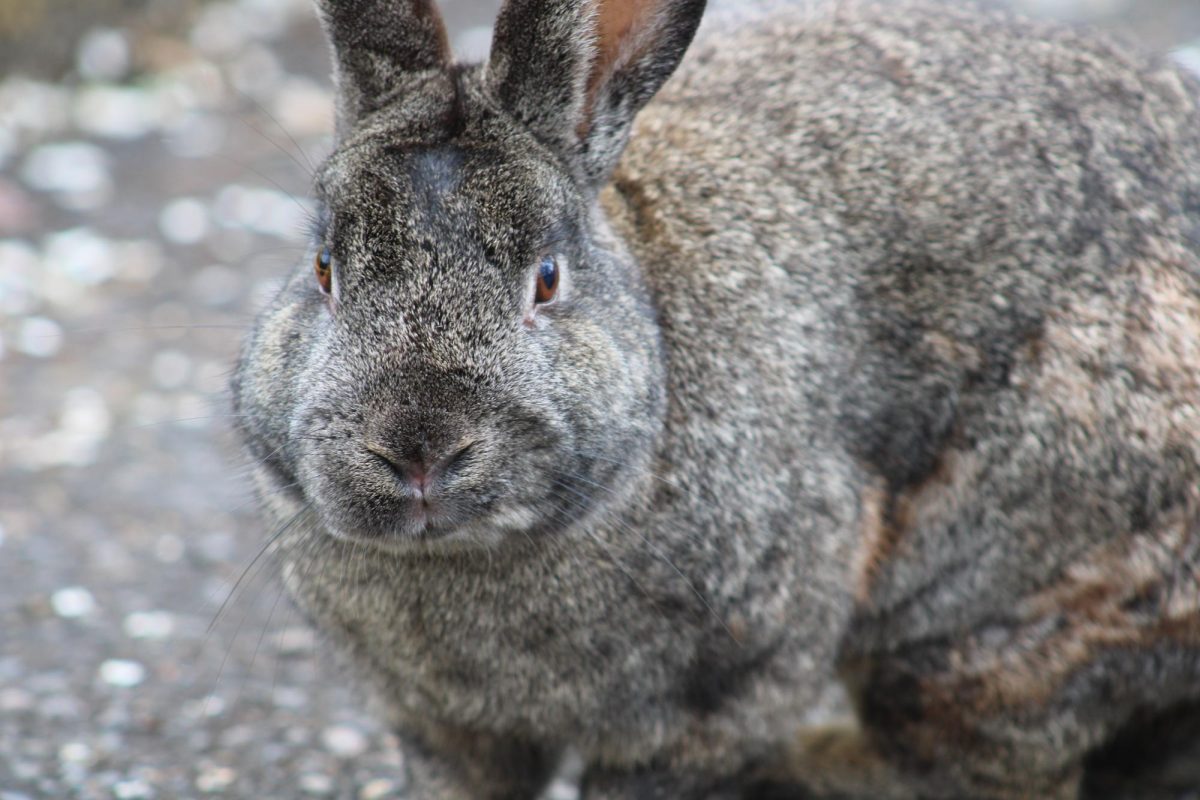Linfield’s resident bunny population has noticeably grown over the past few years, with both students and staff taking a liking to their new furry friends. However, rumors ranging from unusual to grim have been swirling around campus in recent months.
The exact origin of the rabbits is uncertain, but one student’s story aligns with the idea of the original few rabbits being released as pets. “I hear that they were released by the frats many years ago,” said sophomore Riley Sorrell.
There are no sources that verify the rabbits came from the fraternities.
Sorrell also relayed the rumors she had heard about what was happening with the bunnies. “I heard LPS is trying to take them away from us. That’s not nice,” Sorrell said.
The narrative she tells is moderate compared to some of the most extreme theories spread on campus, including rumors that the bunnies are being poisoned, or trapped and sold to people who plan to eat them.
Despite a lack of visible public outrage, these tales have been upsetting to some members of the Linfield community, like Sorrell, who cherish the campus bunnies.
“They’re so cute and adorable, and I love them,” said Sorrell.
Javier Mendoza, Linfield’s groundskeeping supervisor and pest management coordinator, sitting under the industrial light of a break room in Linfield’s Facilities Services building, attempted to dispel these myths.
“I am the only guy who does pest control at Linfield,” Mendoza said.
Although that statement may sound grim to bunny lovers, Mendoza makes it very clear that he is not attempting extermination.
“I think it’s more humane for these bunnies to be adopted by someone,” he said, discussing the technically ongoing but admittedly low-priority relocation program he is instituting to solve the bunny problem.

“It is a low priority,” said Mendoza, comparing the bunny relocation efforts to other things like wasp control and leaf removal.
Mendoza emphasized his preference for rehoming many times throughout the interview, reinforcing his belief that the bunnies would be better served by living as cared-for pets.
“A good home, somebody that would actually care about them, that’d be the best thing to do, because they’re great pets,” Mendoza said.
He primarily worries about their safety.
“It’s not safe for the bunnies to be on campus, okay?” he said, noting how docile the domesticated rabbits are.
“They hide under the cars. And my fear—I’d hate to see a bunny run over by a car,” said Mendoza.
Mendoza’s other concern is the financial damage the bunnies are causing as pests. He described how, initially, this was not an issue as there were only a couple of bunnies on campus.
“But then last year, they started actually damaging the plants and stuff like that… Out of the $4,000 we got on plants, they ate a couple thousand dollars,” Mendoza said.
These two factors — financial losses on landscaping and the bunnies’ safety — are the main drivers of Linfield’s gradual relocation effort. Frustrated with these issues, Mendoza said, “So it’s like, what can we do? And I’m like, well, let’s handle them the best we can. So when we find people that want to adopt them, to me, that’s a reasonable thing to do.”
Mendoza laughed in response to the rumors and rejected any claims of bunnies being harmed.
“No, there is no euthanizing them, no poison. That is something that I’m really not in favor of,” Mendoza said. “If we just let them be the way they are, it’s not really safe for them.”







